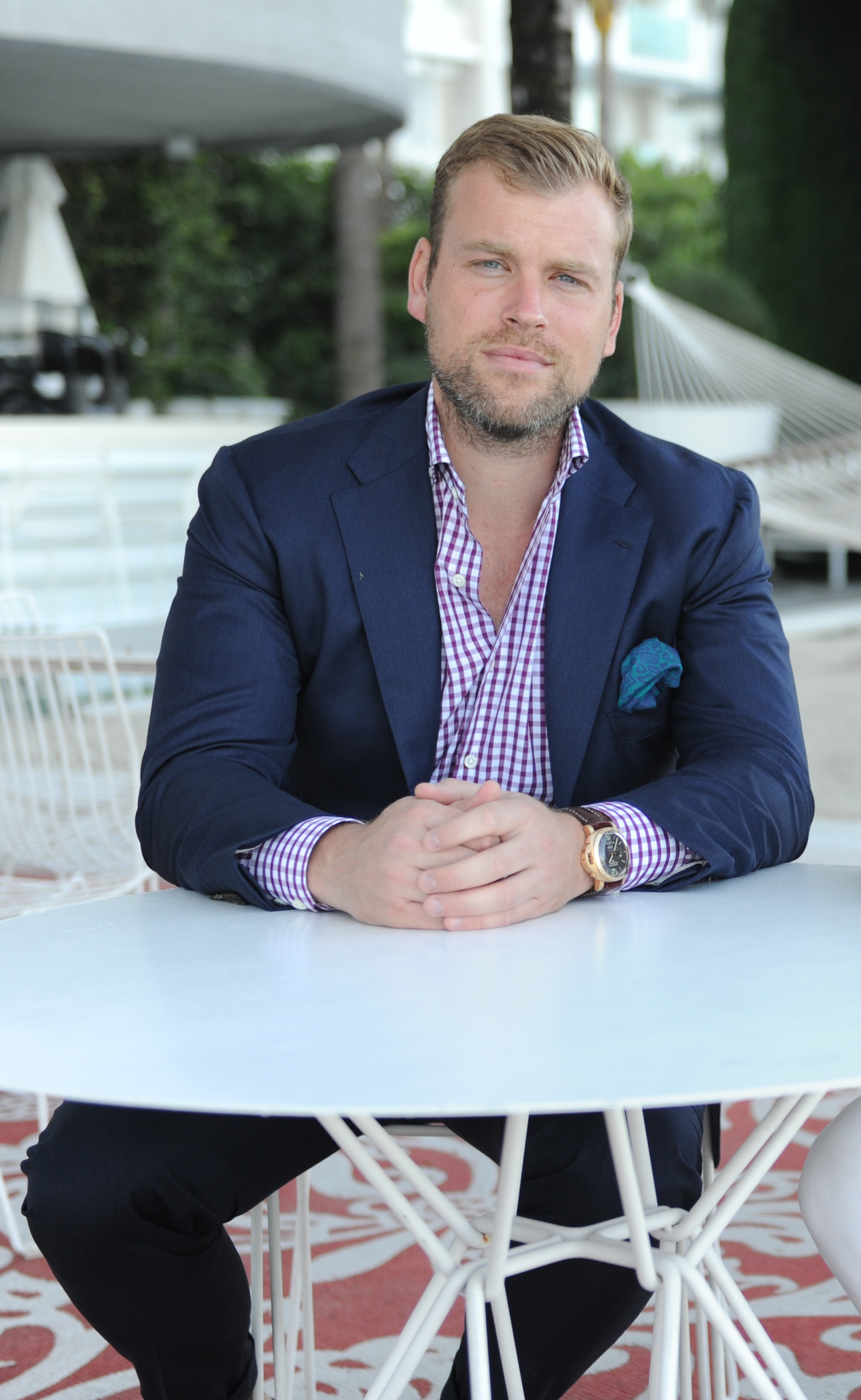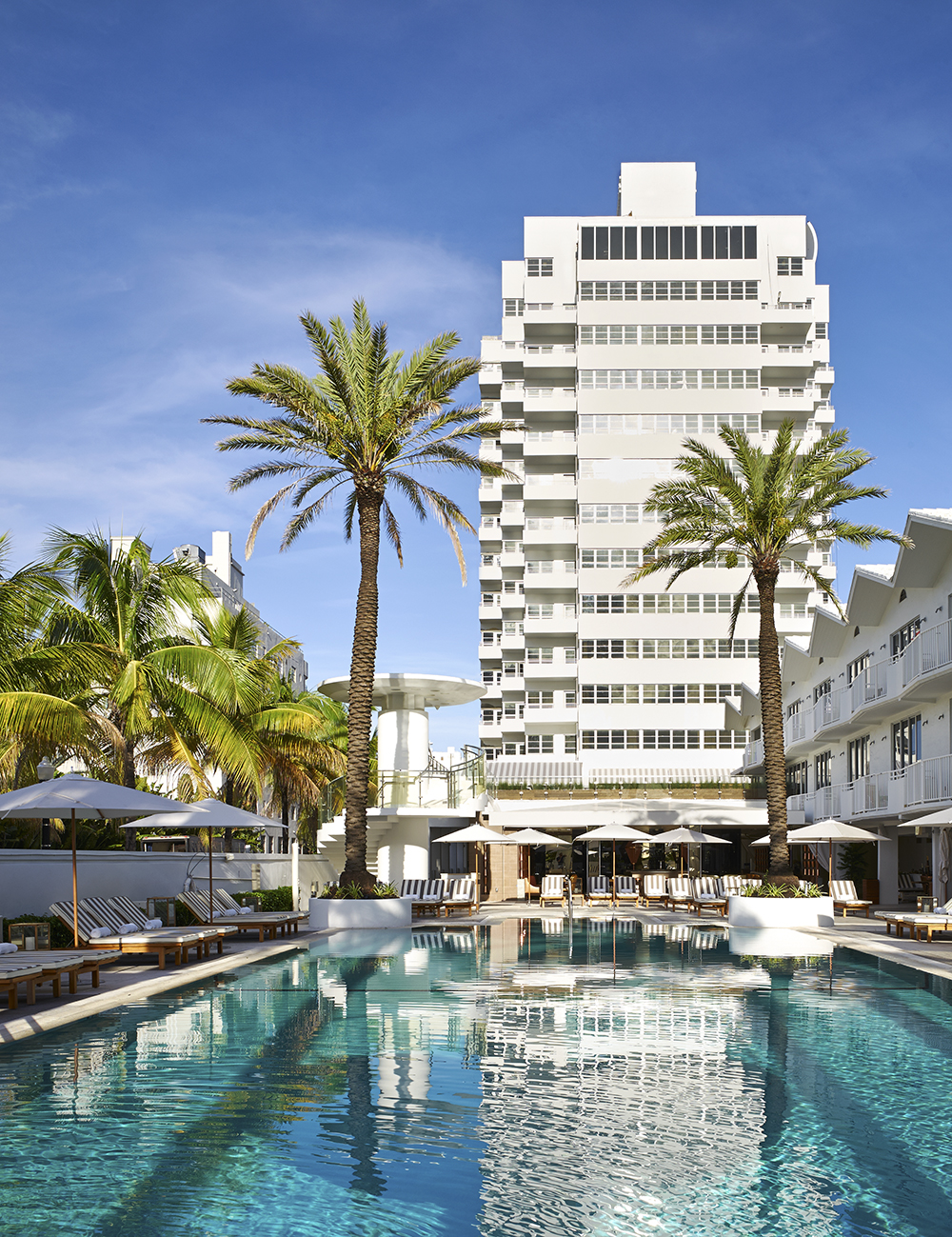Not long ago, Jared Galbut was living in Chicago, managing the Raffaello Hotel, when his cousin, Keith Menin, called him back to South Florida, the land of his youth, to run a new hotel management and development company. The two would join forces to found Menin Hospitality, an operator of boutique and lifestyle hotels in South Beach, Miami and beyond, and it seemed like a destination that was pre-determined.
Galbut is intimately familiar with the development landscape of South Florida. As nephew of Russell Galbut, founder of multifamily developer Crescent Heights, he grew up under the umbrella of a successful property-development and management company, giving him a glimpse of what it looked like behind the wheel. Menin grew up in that same atmosphere, and both of them spent time working in hotels. Once graduating college, both Menin and Galbut worked at the Sanctuary Hotel in Miami before Galbut moved elsewhere.
“There is nothing more satisfying than seeing the company grow from where it started to where it is today,” Galbut said. He remembers taking on operations of the Shelborne South Beach for two-and-a-half years prior to the formation of Menin Hospitality—and as of December, the property is once again under Galbut’s stewardship in Menin Hospitality’s portfolio.

Homecoming
The Shelborne was previously operated by Wyndham Hotels and Resorts, so what led the hotel’s ownership to shed its big-brand connections for Menin? According to Galbut, it’s because Menin’s team is the master of Miami, and places equal emphasis on hospitality, food-and-beverage and nightlife. In addition, a large contingent of Menin’s portfolio consists of independent and boutique hotels, so the Shelborne was right at home.
But running a portfolio of boutiques within such close proximity comes with a laundry list of downsides, as well. For one, every property needs to fight to be unique within the market, but also unique when compared to other properties within Menin. Galbut said the synergies between hotel, F&B and nightlife reap big returns, but it isn’t uncommon for Menin hotels to cannibalize each other’s business. But Menin isn’t a traditional company, and Galbut brings a nonchalant attitude to the situation.
“All of our hotels are in the 3.5- to 4-star category, and some are even competitors, but all have different locations and attributes that guests like,” Galbut said. “We do fight over some of the same groups, but it’s all in good fun. Besides, if one of our hotels wins, then we all win.”

Miami Heat
For all of Galbut’s confidence, Menin still operates in a tough Miami market. The city’s occupancy was down 2.7 percent to 75.9 percent in 2016, while average room rates were down 2.9 percent to $189.77 during the same period, according to STR. In fact, Miami joins Hialeah, Fla., and Houston as the only markets in the top 25 U.S. markets to decline in occupancy, ADR and revenue per available room last year. Miami’s lackluster performance can be traced to a booming supply pipeline, fears of Zika outbreaks and a surge in Airbnb rentals.
“The big things affecting Miami are the convention center, which closed in 2016 and won’t be finished for another year and a half, a stronger U.S. dollar making the destination more expensive for foreign guests and Zika, which was a huge issue for us this summer,” according to Galbut.
Galbut has many misgivings about Airbnb, most of them having to do with the nebulous nature of the company’s supply, making it difficult to monitor its rates and compete against the company in any meaningful way. When asked to list what he believes to be the greatest challenge facing hotel operators in 2017, finding a way to beat Airbnb in markets where it is entrenched, including Miami, top his list.
Eyes Up
Regardless of Miami’s struggles, Menin and Galbut’s confidence in the company and the area only continues to grow. Galbut referred to Miami as a “roller coaster market” that will be calmed with the reopening of the city’s convention center.
Meanwhile, the company is looking outside The Magic City for growth, with its eyes on Chicago, New York and other East Coast locations, along with the West Coast, if the right deal comes along.
“We don’t see the West Coast happening for us in the near future, as we like to expand quickly in our own backyard,” Galbut said. “In new markets, we would want to start out with just one hotel and grow from there.”
